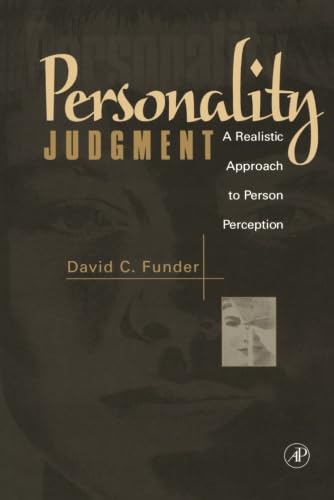Items related to Personality Judgment

Synopsis
Accuracy in judging personality is important in clinical assessment, applied settings, and everyday life. Personality judgments are important in assessing job candidates, choosing friends, and determining who we can trust and rely on in our personal lives. Thus, the accuracy of those judgments is important to both individuals and organizations. In examining personality judgment, this book takes a sweeping look at the field's history, assumptions, and current research findings. The book explores the construct of traits within the person-situation debate, defends the human judge in the face of the fundamental attribution error, and discusses research on four categories of moderators in judgment: the good judge, the judgeable target, the trait being judged, and the information on which the judgment is based. Spanning two decades of accuracy research, this book makes clear not only how personality judgment has come to its current standing but also where it may move in the future.
"synopsis" may belong to another edition of this title.
Review
"Funder provides a timely, up-to-date, historical examination that is both concise and thorough... Funder presents an excellent exposition of the underlying philosophical issues surrounding accuracy judgements." --CHOICE
About the Author
David Funder is best known for his research on personality judgment and his recently developed theory of the process by which one person may render an accurate judgment of the personality traits of another.He has also published research on the longitudinal course of personality development, delay of gratification, and attribution theory.
"About this title" may belong to another edition of this title.
Search results for Personality Judgment
Personality Judgment
Seller: Revaluation Books, Exeter, United Kingdom
Paperback. Condition: Brand New. 260 pages. 9.04x6.04x0.59 inches. In Stock. Seller Inventory # zk012399554X
Quantity: 1 available

